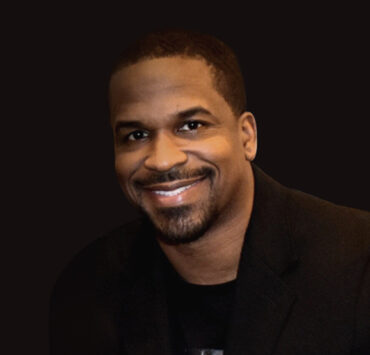
The Oklahoma Eagle is excited to publish a new edition of its 918 Series, a brief Q&A with Tulsans who share their passions and invest in our shared communities. As the title suggests, the series will offer the responses to a mix of nine entertaining and thoughtful questions and one highly person/serious question, all within eight minutes.
1. What plans do you have to raise TYPROS to another level?
I am trying to get the organization to go beyond what it does and be more of a resource for young professionals. It should be a place where people can come and, if for example, they’re interested the arts or government relations, they will be able to get guidance. We should also offer them connections and professional opportunities.
2. What has changed in recent years to make Tulsa a more attractive space for young Black, Indigenous and People of Color (BIPOC) who have or want careers as professionals?
There were pioneers – me among them – who decided to build spaces for people who look like us – Black and Brown people – to thrive. Personally, I went from looking for those spaces to realizing I had to create them. It took at least three to five years and a lot of strategy.
3. What further changes do you have in mind in TYPROS to raise up professionals of color?
We have to define things so that there is an even board. It has to start with a definition of what equity looks like. What won’t work is for people to think well we have this Black space now, too. I want it to be a space where we can go into and not look like we’re crazy when we do.
4. When you’re not working what’s your favorite get away from it all place in Tulsa?
When the pandemic isn’t going too crazy, I love to go to the Black Wall Street Liquid Lounge. There’s a drink they have called the Love Potent that I am crazy about. I like just hanging out there, doing puzzles and talking to folks. The vibe is so warm. And the acknowledgement you get from everybody is wonderful.
5. What advice would you give to your 12-year-old self?
Pay attention to and enjoy the process and not where you are going. Be observant. Stay in the process and learn from it.
6. What role should mentorship play in developing a professional life?
Mentorship and sponsorship should go hand in hand. Mentors should not just say your name. They should open doors for you. They should help bring you to the table, especially if you’re in the same company, and you’re trying to go up the corporate later. Mentorship without sponsorship is just a lot of talk without action.
7. How can a young North Tulsan, who has ambitions to be a professional, start to jump into the game?
The first thing I always tell people is to have a good sense of what they want, what their purpose in life is. A lot of Black and Brown people – and those who are underserved – have a survival mentality. They’re trying to do this and that. When you know what your purpose is, it’s easier to figure out how to maximize your effort.
8. You’ve worked for big corporations. Now you’re a one woman show. What’s better?
I was in corporate. Now I’m in consulting. They’re so different. I want to be in tech. I’m on the path to get certified. While I was with a major corporation, I learned what I needed to learn. One important lesson was what kind of leader I want to be and what kind of leader I will never be. It also taught me how to be cross functional.
9. What are the characteristics that successful professional people in Tulsa have in common?
They move in silence. They know that not everyone needs to know their business. They are disciplined and pay attention to who has access to them and their energy. They’re not into telling what their whole strategy is. They know that it’s possible to build a car but don’t give away the steering wheel, the gear shift, and the keys. But they protect their space and the seeds they are planting. When it’s time to announce, they announce.
10. Where are you in your life’s mission and how does TYPROS fit into that?
My purpose in life is to be a resource and help people actualize their superpowers, to make sure that people like me can succeed.
My decision to take on the chair’s role at TYPROS was based on the opportunity it gives me to completely revolutionize the organization.
I am pleased to say that we seem to be on the way. There are already more people of color joining, including some in leadership roles. That fits directly into my life mission and my goals for the organization.








